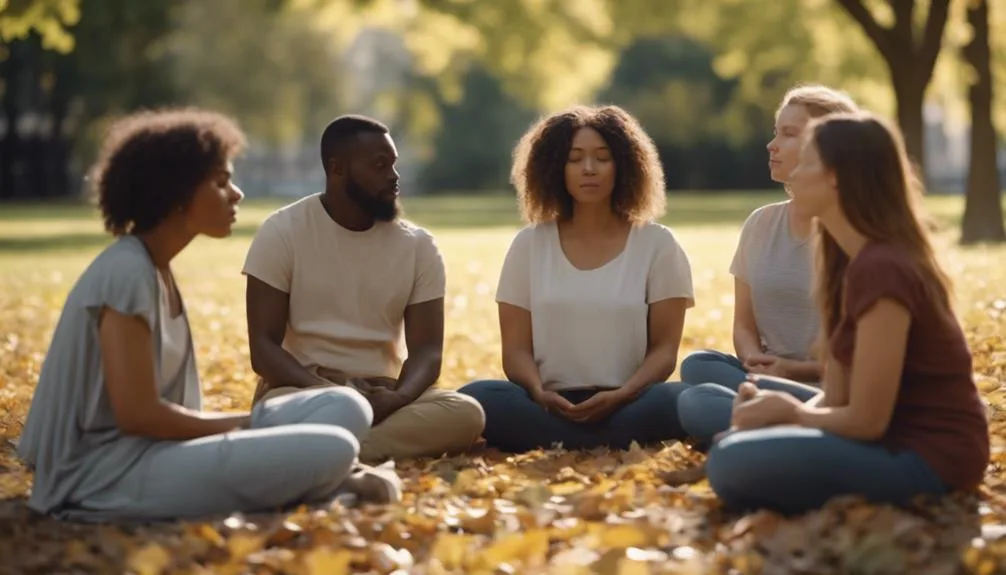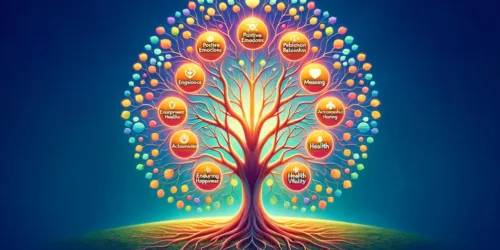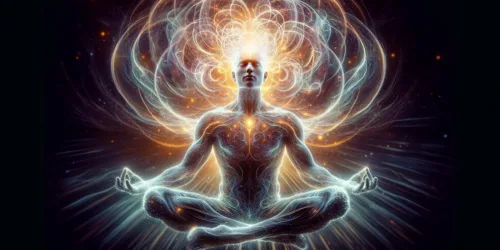Breathing Techniques Unleash Calm Amidst Anxiety
We've wandered through waves of worry and stumbled upon a serene solution: breathing techniques that beckon calm amidst the chaos of anxiety.
It's a discovery that's both simple and profound, as these practices promise to peel away layers of stress with nothing more than the power of our own breath.
But how exactly do these techniques transform tension into tranquility?
We invite you to join us on this journey, where we'll unveil the science that makes this possible and share strategies that can be seamlessly integrated into daily life.
Together, let's explore how a deep breath can become our most trusted ally in the battle against anxiety.
Key Takeaways
- Various breathing exercises can effectively reduce anxiety and induce a state of calm.
- Activating the vagus nerve through deep breathing can calm the body's stress response.
- Practicing specific breathing techniques offers quick relief from anxiety symptoms.
- Regularly engaging in breathing exercises can enhance overall mental health and well-being.
Understanding Anxiety
To effectively tackle anxiety, it's crucial we understand its roots and how it manifests in our lives, recognizing that it's not just a fleeting feeling but a complex interplay of mental, physical, and emotional responses.
Anxiety triggers vary widely among individuals, ranging from specific situations to more generalized worries about life's uncertainties. Identifying these triggers is the first step towards managing anxiety.
We've found that adopting various coping mechanisms can significantly mitigate anxiety's impact. These mechanisms include, but aren't limited to, grounding techniques, structured problem-solving, and seeking social support.
Breathing Exercises Overview
Breathing exercises offer a powerful tool for managing anxiety, grounding us in the present and providing immediate relief from stress. We've found that incorporating deep breathing into our daily routines not only calms the mind but also fosters a mindfulness practice that can significantly reduce feelings of anxiety.
| Technique | Benefit |
|---|---|
| Belly Breathing | Anchors in the present, reduces stress |
| Alternate Nostril | Balances body and mind, reduces anxiety |
| The Physiological Sigh | Down-regulates stress response |
| Four, Seven Breathing | Focuses the mind, induces calm |
Through these practices, we're able to offer ourselves a moment of tranquility amidst the chaos. It's a simple yet profoundly impactful way to care for our mental health.
Vagus Nerve Activation

Understanding the role of the vagus nerve in managing anxiety offers us a deeper insight into how specific breathing exercises can significantly enhance our sense of calm and well-being. By engaging in practices that activate the vagus nerve, we harness the power to shift our body into a state of relaxation, directly countering the stress response that so often accompanies anxiety.
- Deep breathing directly stimulates the vagus nerve, promoting a state of calm by reducing the heart rate and blood pressure.
- Relaxation techniques that involve extended exhalations enhance vagus nerve activation, further fostering a sense of peace.
- Humming breaths not only focus our minds but also physically vibrate the vagus nerve, amplifying its calming effects.
These approaches showcase the potent interplay between our respiratory patterns and our nervous system's ability to find equilibrium amidst stress.
Nervous System Hacks
Harnessing the power of breathwork, we can effectively hack our nervous system to mitigate stress and anxiety, providing immediate relief and long-term benefits. By understanding and applying specific breathing techniques, we gain control over our body's response to stress, guiding ourselves towards a state of calm. It's a journey of discovering what works best for each of us, offering a personalised approach to stress relief and relaxation.
| Technique | Benefit |
|---|---|
| Deep Breathing | Lowers heart rate, promotes calm |
| Box Breathing | Enhances focus, reduces stress |
| Humming Breath | Activates vagus nerve, induces relaxation |
| 4-7-8 Breathing | Improves sleep, controls anxiety |
These methods are not only accessible but also backed by science, providing a solid foundation for anyone looking to improve their mental wellbeing.
Anxiety Management Strategies

Exploring anxiety management strategies allows us to further expand on the foundation laid by effective breathing techniques, offering us a broader toolkit for addressing stress and promoting mental well-being. Our journey into stress reduction highlights the critical mind-body connection, guiding us towards a healthier, more balanced state.
- Mindfulness Meditation: Regular practice sharpens our focus, anchoring us in the present and reducing overwhelming feelings.
- Physical Activity: Engaging in regular exercise boosts endorphins, naturally combating stress and enhancing our mood.
- Healthy Sleep Habits: Prioritizing sleep strengthens our resilience against anxiety, as rest is fundamental to our mental health.
Self-Care Essentials
At the heart of managing stress and enhancing well-being, self-care practices offer a foundation to build a healthier, more balanced lifestyle. We've learned that self-care routines, which may include mindfulness practices, aren't just indulgent—they're essential tools in our mental health toolkit.
By integrating routines that prioritize our physical and emotional health, we're better equipped to handle life's stresses. Mindfulness practices, for instance, anchor us in the present moment, allowing us to observe our thoughts and feelings without judgment. This awareness is crucial; it empowers us to navigate our emotional landscape with empathy and understanding, reducing anxiety and enhancing our capacity for joy.
It's through these practices that we cultivate resilience, ensuring we're not just surviving, but thriving.
Mental Health Resources

Navigating the landscape of mental health, it's crucial we're aware of the resources available to support our journey towards well-being. As we delve deeper, we find that:
- Coping mechanisms play a pivotal role in managing daily stressors, empowering us to maintain our mental equilibrium.
- Support networks, both online and offline, provide us with a sense of community and understanding, crucial for feeling less isolated in our struggles.
- Access to professional help is fundamental, offering tailored strategies and interventions for individual needs.
Understanding these resources enhances our ability to navigate challenges more effectively. It's our collective responsibility to seek and share knowledge on these supports, fostering an environment where mental health is prioritized and stigma is dismantled.
Personal Growth Tools
Understanding the resources available for managing mental health sets the groundwork for incorporating personal growth tools into our daily lives. We've learned that breathing exercises, including belly breathing and alternate nostril breathing, offer immediate stress relief and anchor us in the present moment. These methods not only provide a foundation for mindfulness practices but also serve as crucial stress relief techniques.
By engaging in these practices, we're taking active steps towards managing our anxiety and promoting personal growth. Adopting such tools requires patience and consistency, yet the benefits they unlock—enhanced calm, reduced stress, and a greater sense of control—are invaluable.
As we explore these practices further, we equip ourselves with the means to navigate life's challenges more effectively, fostering a healthier mental state and encouraging personal development.
Engaging With Community

Engaging with a community, whether through online platforms or local groups, can significantly amplify our journey towards mental health and personal growth. When we share our experiences and learn from others, we're not just gaining insights; we're also building a network of support that can be invaluable in times of need.
Here's how we've found community support and group therapy to be beneficial:
- Shared Experiences: Realizing we're not alone in our struggles creates a sense of belonging and reduces isolation.
- Diverse Perspectives: Learning from the varied experiences of others can offer new strategies for managing anxiety.
- Collective Strength: Being part of a group provides emotional support and motivation, empowering us to face challenges with greater resilience.
Frequently Asked Questions
Can Breathing Exercises Replace Medication for Anxiety Management?
We've found that while breathing exercises offer a holistic alternative, they don't always replace medication for anxiety management. They reduce medication dependency by providing a natural way to manage symptoms with consistent practice.
How Do I Know if I'm Performing the Breathing Techniques Correctly to Maximize Benefits?
We're navigating the waters of technique validation, seeking feedback mechanisms to ensure we're on the right path. Feeling a deeper calm and noticing reduced anxiety are signs we're performing breathing exercises correctly.
Are There Any Risks or Side Effects Associated With Practicing These Breathing Exercises?
We've found that while breathing exercises generally offer relief, there's a risk of hyperventilation for some. Individual variability means effects can differ, so it's crucial to proceed with caution and awareness of one's own reactions.
How Quickly Can I Expect to See Results From Incorporating Breathing Exercises Into My Daily Routine?
We've found that incorporating breathing exercises into our routine works wonders almost instantly. Personal experiences highlight immediate effects, offering a quick calm. Analyzing evidence, it's clear these techniques can swiftly soothe, grounding us empathetically in moments of stress.
Can Breathing Exercises Be Effective for Children or Teenagers Experiencing Anxiety, and Are There Any Modifications Needed for Younger Age Groups?
We've found that breathing exercises are indeed effective for kids and teens dealing with anxiety. Adjusting for age appropriateness and integrating them into school routines can make a significant, empathetic difference in managing stress.
Conclusion
We've walked through the science and soul of breathing techniques, understanding their power to soothe anxiety.
Some may argue, 'But I've tried breathing exercises, and they didn't work for me.' It's crucial to remember, finding the right technique takes patience and practice.
These methods aren't just quick fixes but are stepping stones towards mastering anxiety management.
By consistently integrating these practices into our daily lives, we unlock a deeper level of tranquility, proving that our breath is indeed our most accessible tool for peace.






